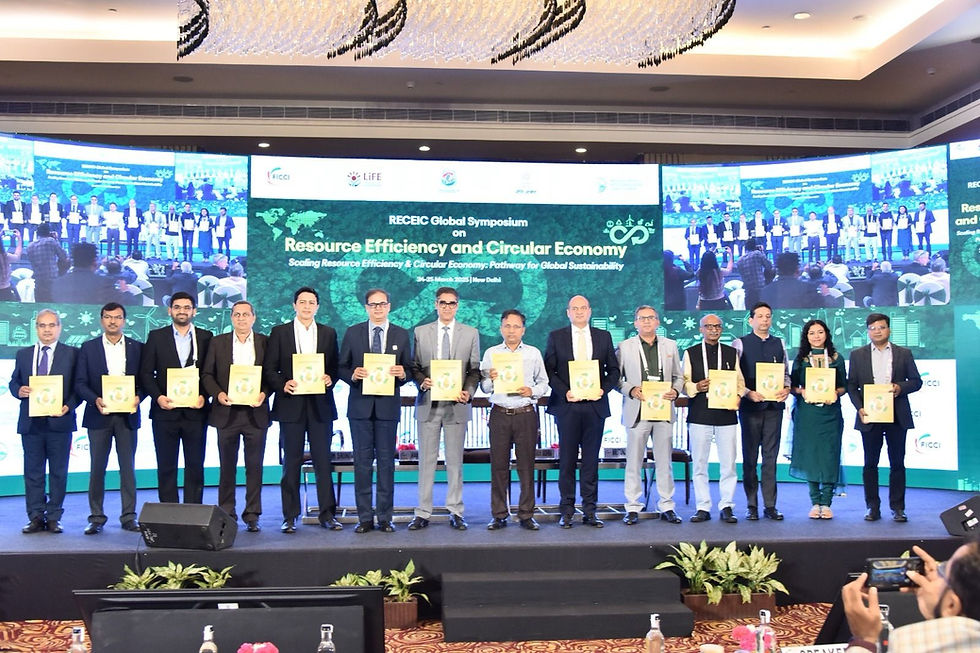
2 Apr 2025
India needs a structured, phased approach that integrates regulatory reforms with technological advancements to revamp its fragmented and largely informal used oil recycling sector, according to a new report by the Federation of Indian Chambers of Commerce and Industry (FICCI), the Resource Efficiency and Circular Economy Industry Coalition (RECEIC), and Deloitte.
India needs a structured, phased approach that integrates regulatory reforms with technological advancements to revamp its fragmented and largely informal used oil recycling sector, according to a new report by the Federation of Indian Chambers of Commerce and Industry (FICCI), the Resource Efficiency and Circular Economy Industry Coalition (RECEIC), and Deloitte.
Unveiled at the Global Symposium on Resource Efficiency & Circular Economy, the report, "Advancing India's Self-Reliance: Enhancing Circularity in Used Oil Management," outlines a strategic roadmap for transforming the existing system into a more sustainable and efficient model. As a Working Group member on Used Oil at Resource Efficiency & Circular Economy Industry Coalition (RECEIC), Rosefield contributed key technical insights and frameworks to advance circularity in used oil management.
Used oil can be re-refined into high-quality lubricants, providing significant economic and environmental benefits. However, inefficiencies in collection and processing currently result in environmental hazards and lost value recovery opportunities.
To address these issues, the Indian government has introduced an Extended Producer Responsibility (EPR) framework, requiring producers to recycle an increasing share of their used oil—from 5% in FY2025 to 50% by FY2031. Consequently, the demand for EPR certificates is projected to rise from 0.08-0.09 million metric tonnes (MMT) to 0.85-1.00 MMT over the same period.
Despite a growing market, expected to reach 5.0-6.0 MMT by FY2031, the report highlights that the supply chain remains highly fragmented. It comprises multiple stakeholders—generators, collectors, aggregators, re-refiners, and lubricant producers—whose interactions are hindered by underreporting, cash-based transactions, and the diversion of used oil into unauthorized channels.
To bridge these gaps, the report recommends establishing a National Used Oil Management Association by FY2026 to centralize governance. Key proposals include mandatory digital registration for bulk generators, a track-and-trace system for improved transparency, a tiered collection network, and regular audits to formalize operations and uphold quality standards.
Medium-term objectives (FY2027-FY2028) focus on integrating the informal sector into the formal framework through digital self-registration, capacity-building initiatives, and training programs. Additionally, financial support for technology upgrades and regional testing centers is deemed essential to enhance re-refining capabilities.
From FY2029 onwards, the roadmap envisions systemic regulatory reforms and infrastructure development, including demonstration plants for advanced technologies and incentives for the production of high-quality re-refined base oils (RRBO).
The report emphasizes the need for India to align its policies with international best practices, advocating for a comprehensive, phased strategy that merges regulatory improvements, technological progress, and supply chain formalization to ensure long-term sustainability.
The detailed article published by receic.com can be accessed from https://receic.com/wp-content/uploads/2025/03/Used-Oil-Online.pdf
Source
